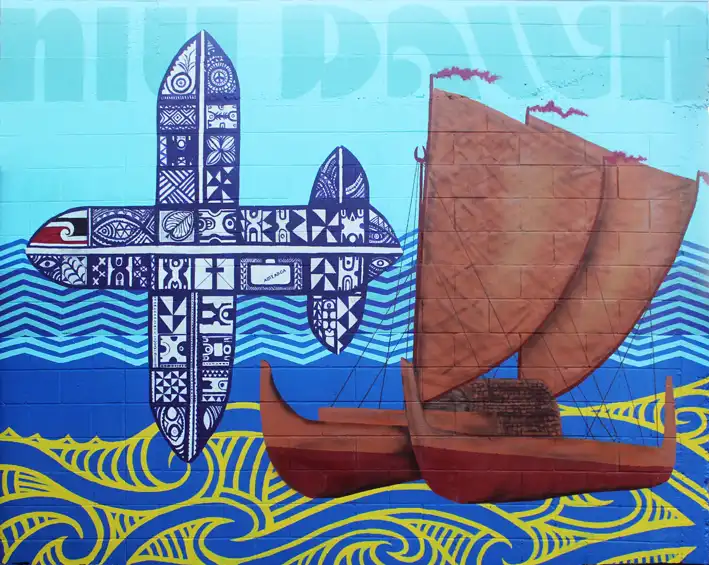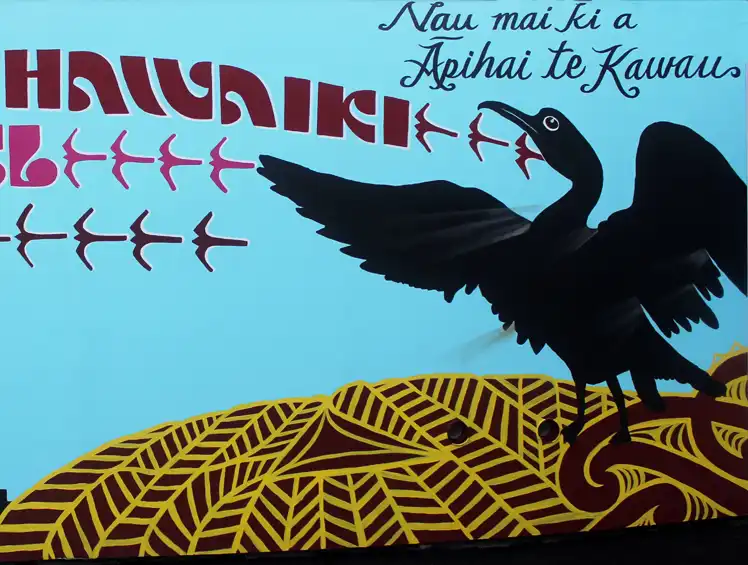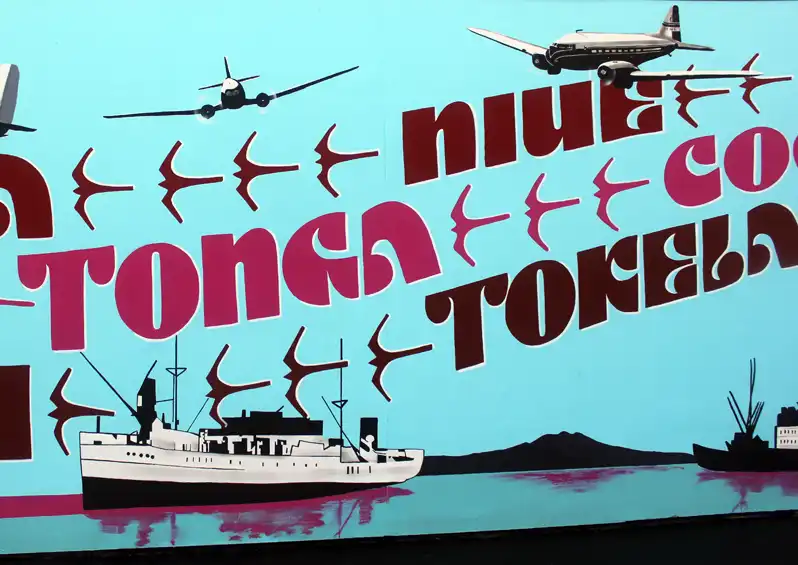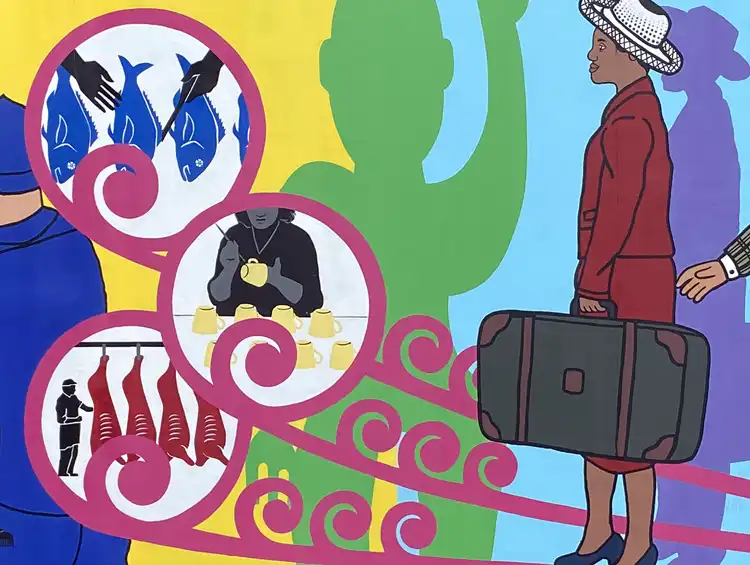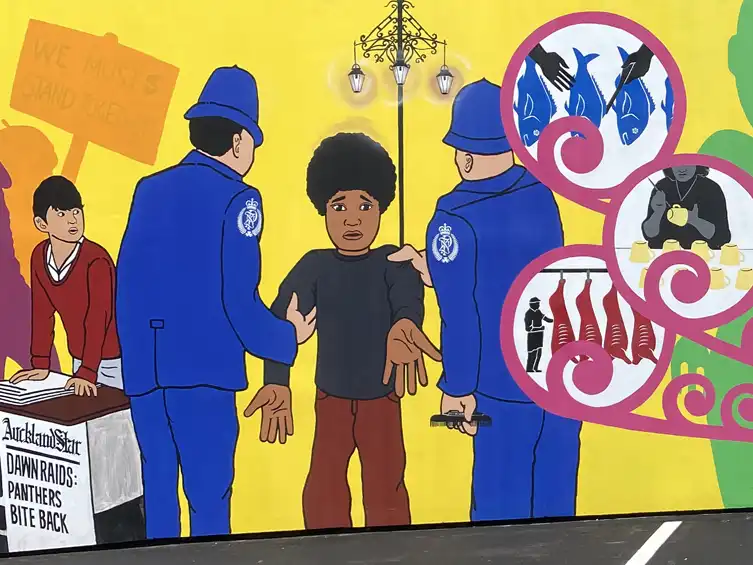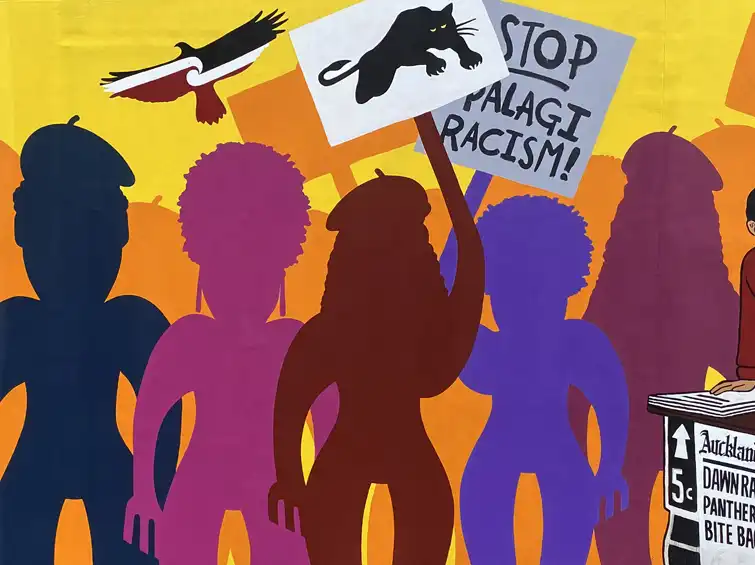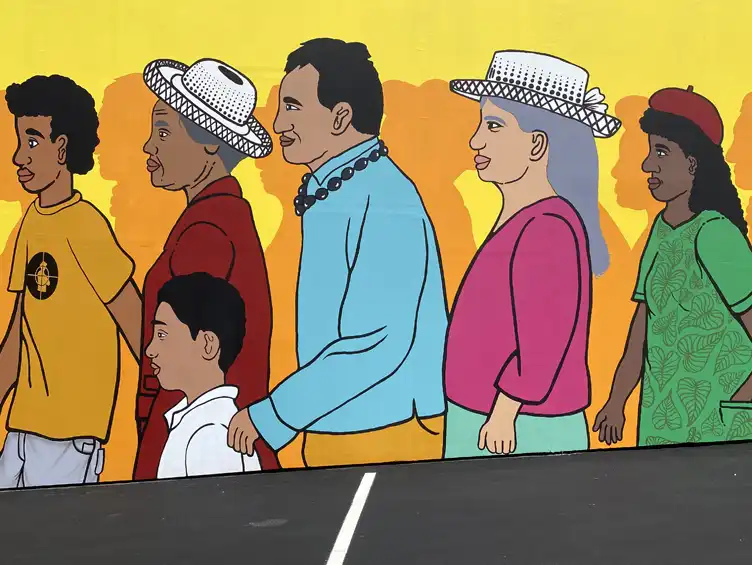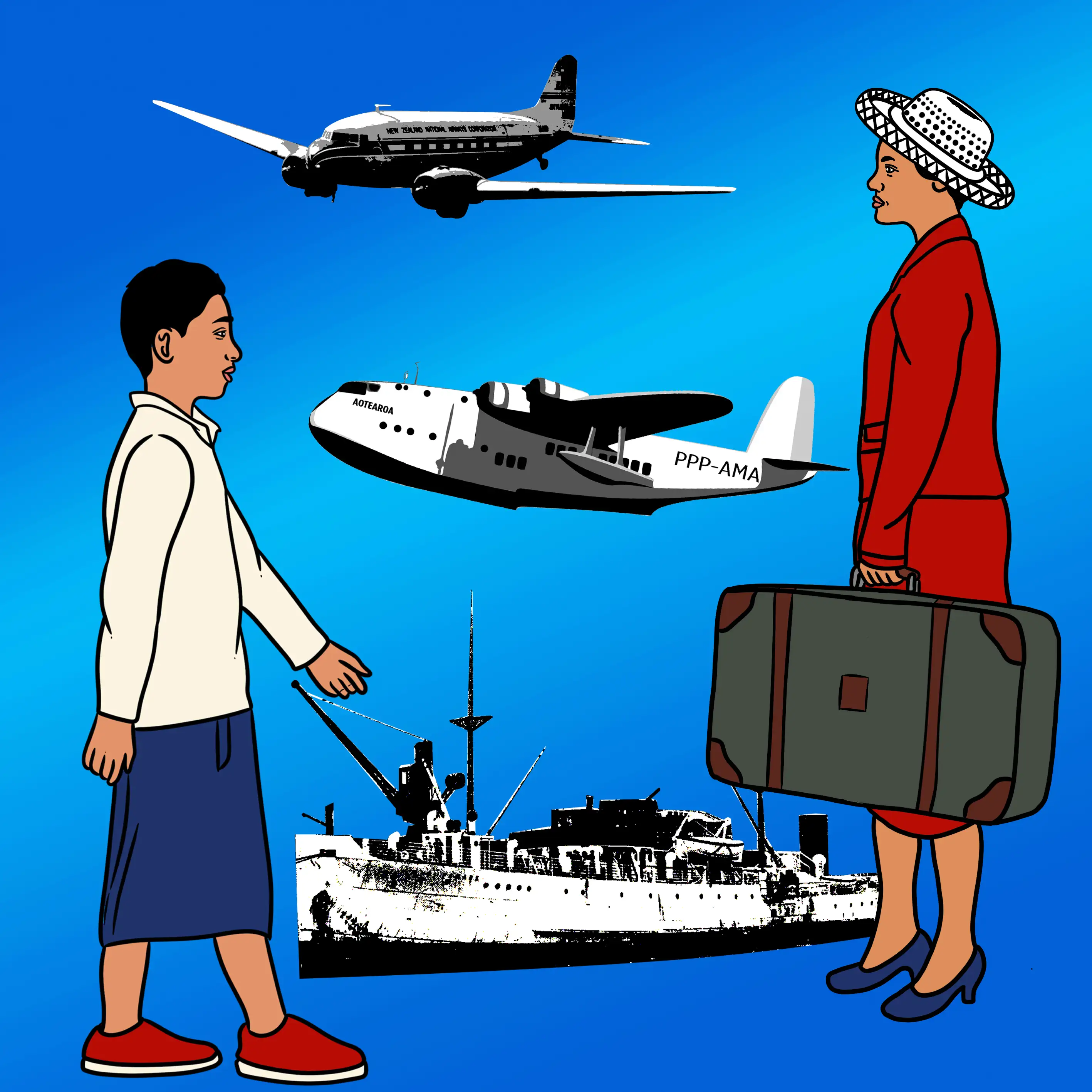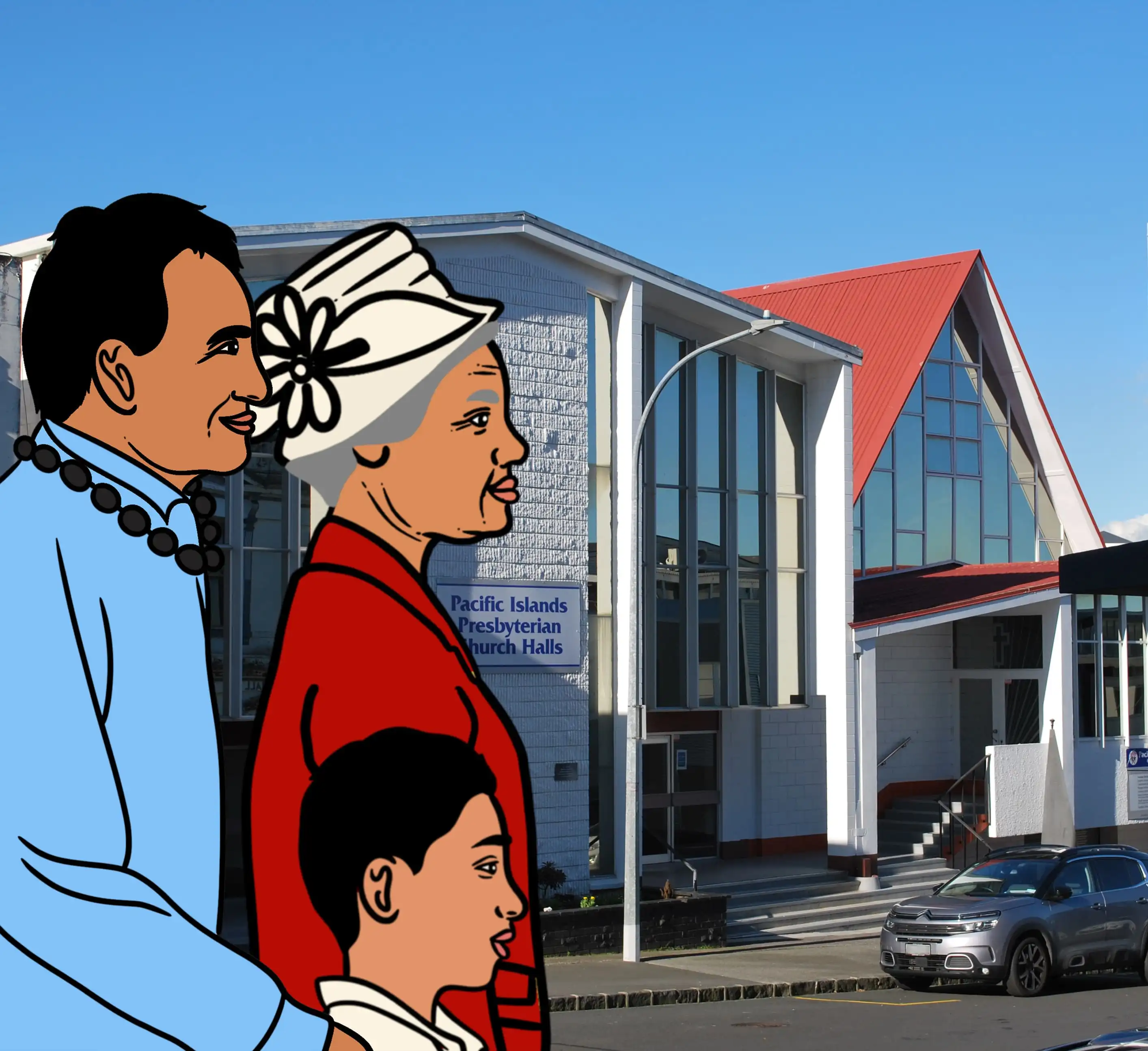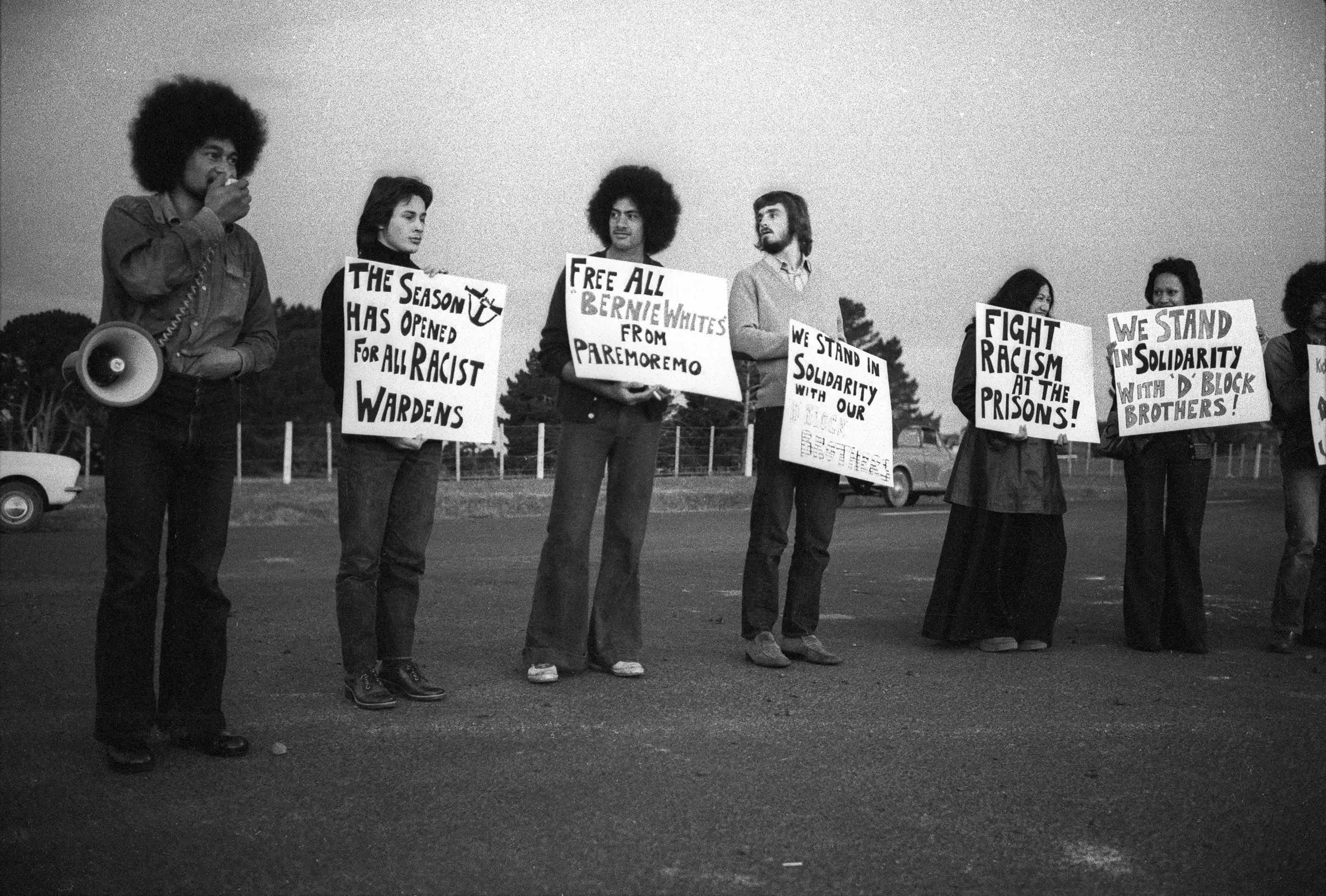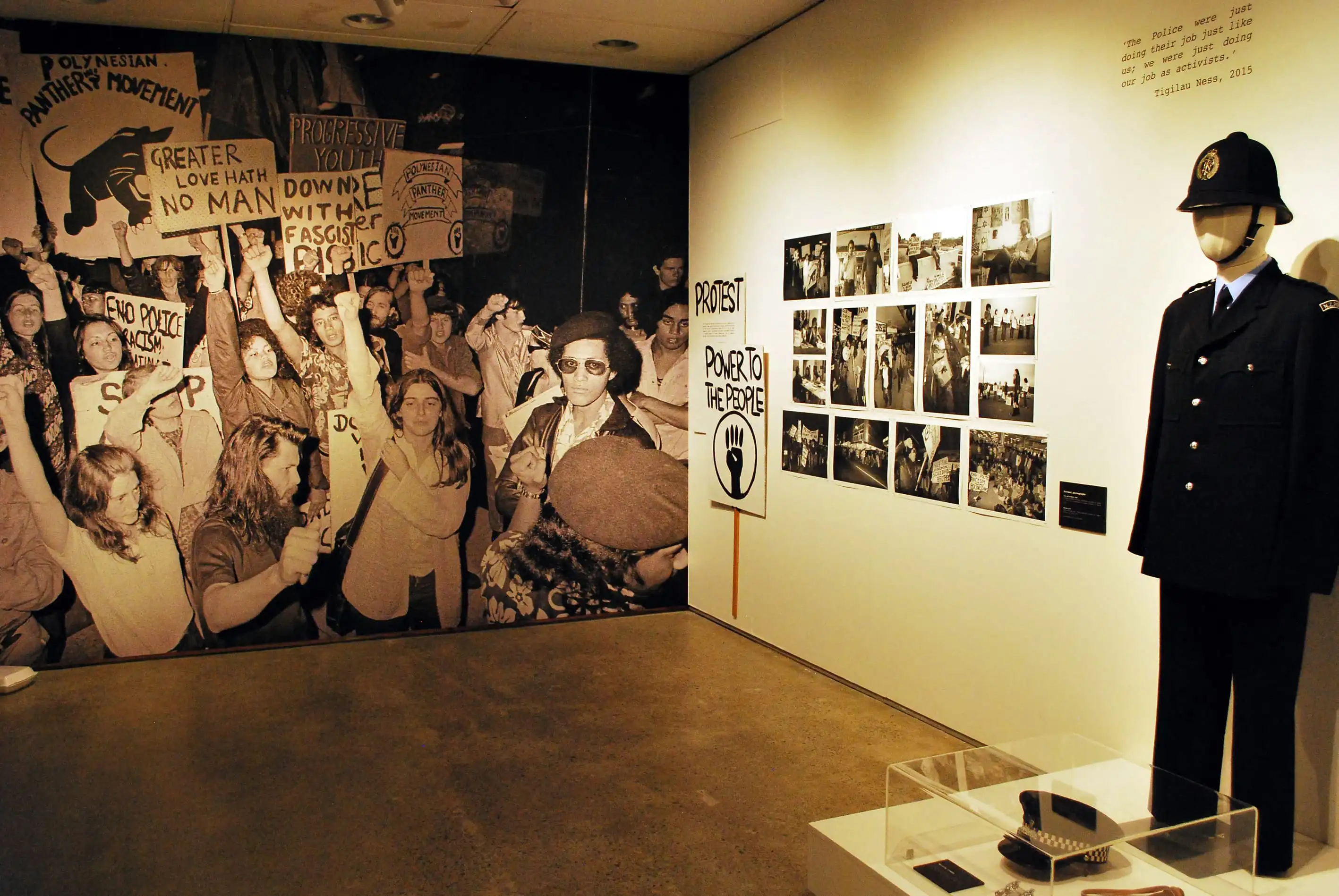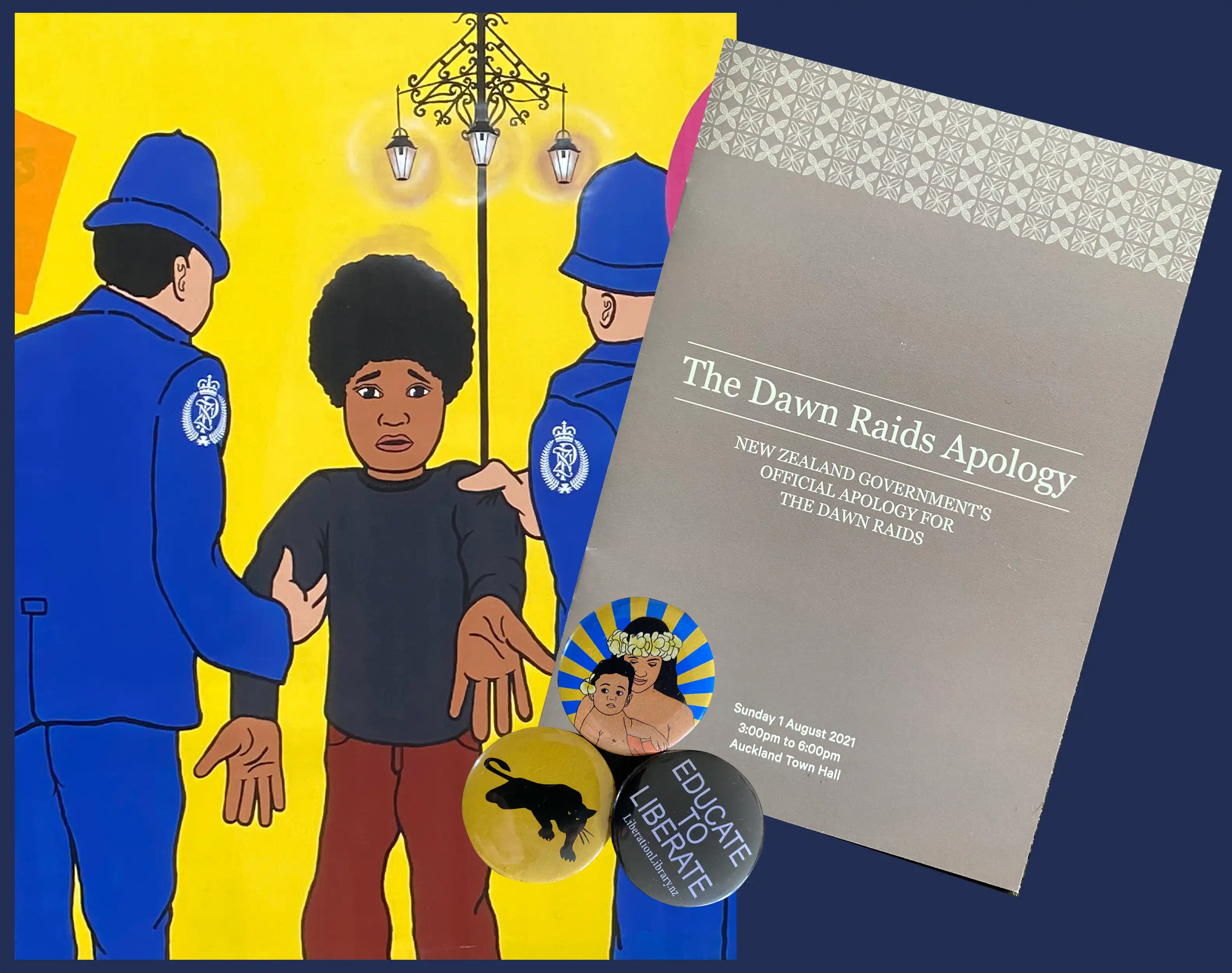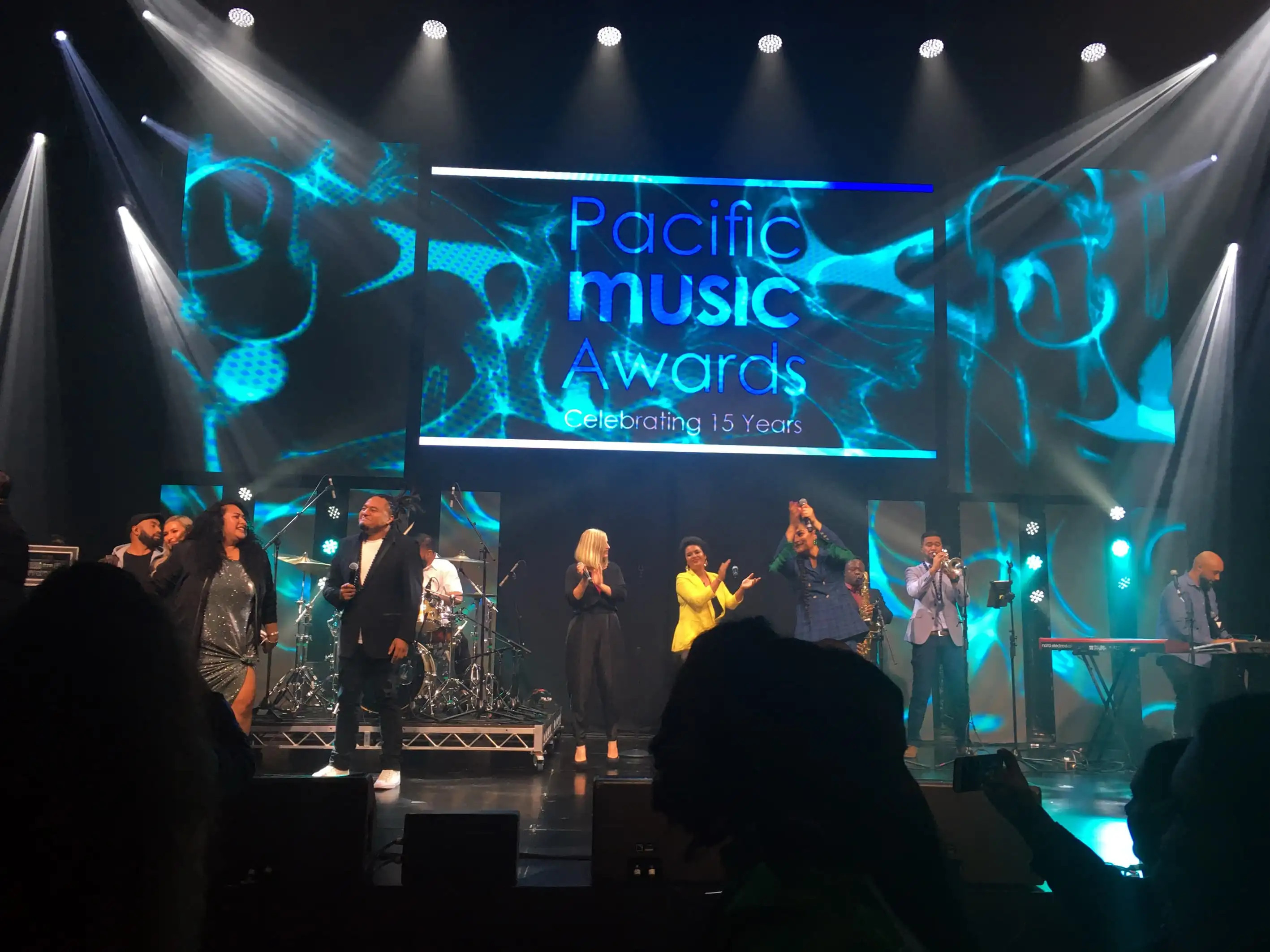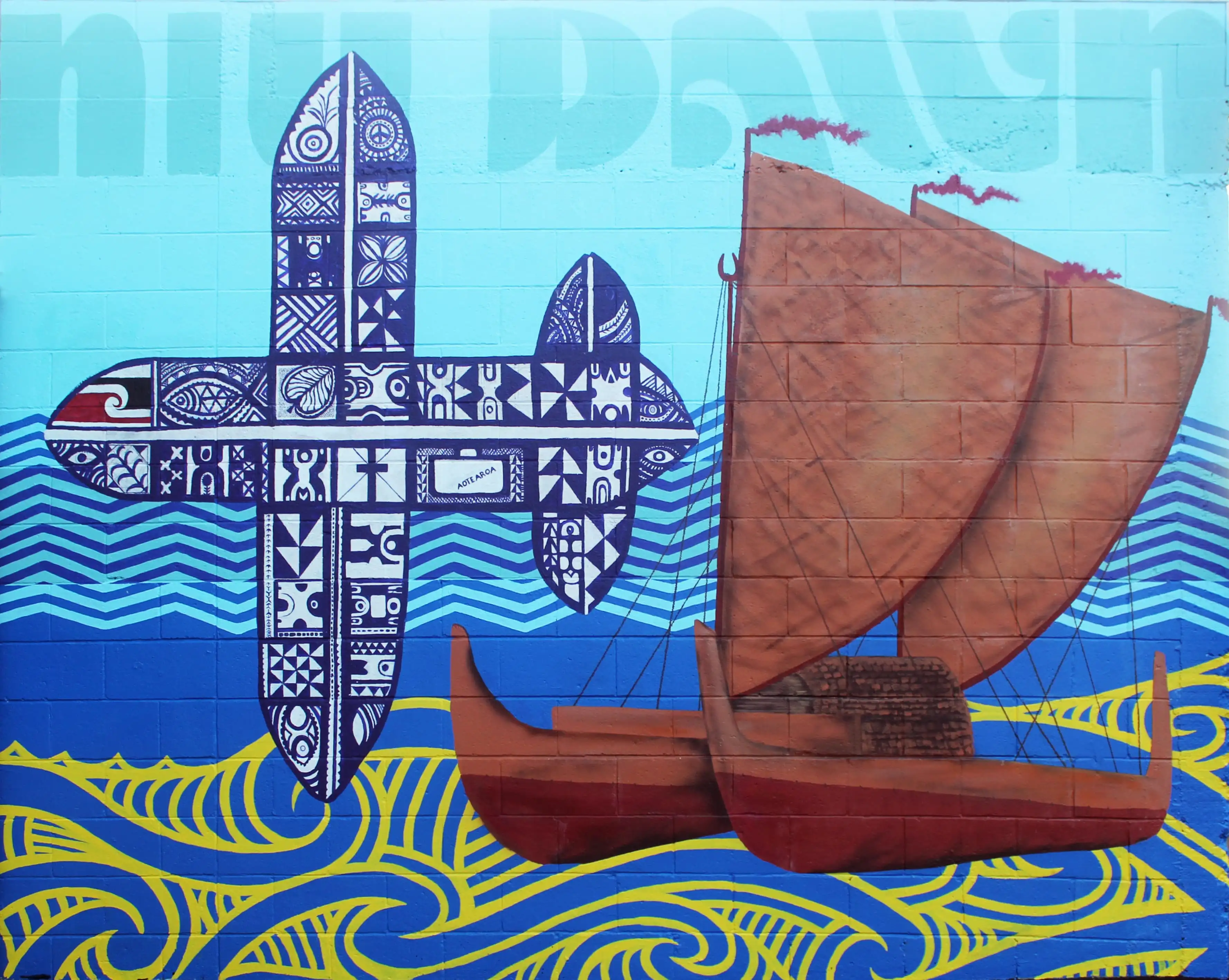
The story behind the mural
The Niu Dawn Mural Project addresses Pasifika migration to Aotearoa/New Zealand for work opportunities, the Dawn Raids of 1974-1976, the rise of the Polynesian Panthers and social justice for those incarcerated and removed. The fight against racism, equity and social injustice continues to this day. The mural was completed in December 2024.
The New Zealand Police, instructed by the government, raided homes, businesses and stopped people on the streets demanding permits, visas, passports for proof of the right to be in New Zealand. Pacific peoples were the almost exclusive target despite the bulk of overstayers (people remaining in the country after visas have expired) were from Europe or North America.
The Niu Dawn Mural Project includes artists Huriana KopekeTe Aho, Numa Mackenzie, Toa Sieke Taihia, Simon Endres, Chris McBride with support from kaiawhina Harata Sidney, Owen Thompson and volunteers. Tigilau Ness of The Polynesian Panther Party Legacy Trust provided pre-production advice and support. The Mural Project is part of our mahi to bring our stories alive with inspirational messaging, recognising past and future hopes and well-being and to generate positive inspiration and hope for future generations.
The Niu Dawn Mural Project follows on from the nearby Whakaako Kia Whakaora Educate To Liberate completed in 2021 with support from former Black Panther Party Revolutionary Artist and Minister of Culture Emory Douglas and Polynesian Panther Party Minister of Culture, musician and activist Tigilau Ness.
The production of the Niu Dawn Mural was funded by the Ministry for Culture & Heritage, Pacific People's Ministry and administered by Creative New Zealand.
Additional support for the Niu Dawn website development and Zine: Auckland Council Content Creation Services Auckland Library.

